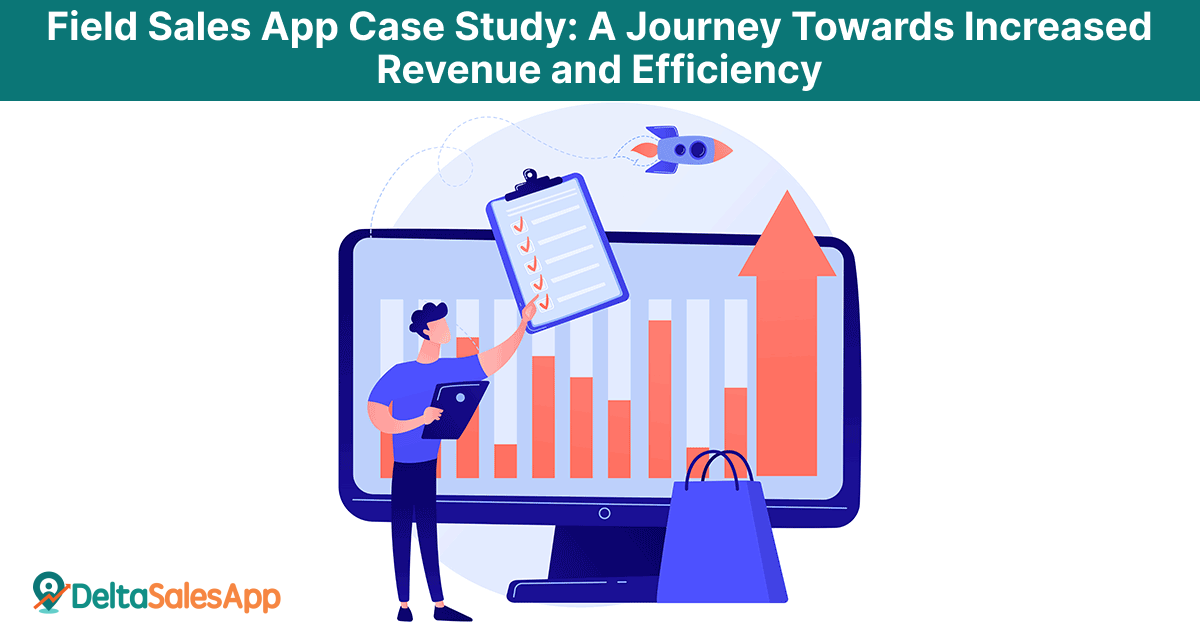Field Sales App Case Study: A Journey Towards Increased Revenue and Efficiency

In today's competitive business landscape, staying ahead of the curve is essential for sustained growth and profitability. For sales-driven organizations, optimizing field sales operations is a crucial factor in driving revenue and enhancing efficiency. In this comprehensive case study, we delve into the remarkable journey of a company that embraced a Field Sales App to revolutionize its sales approach. From the challenges they faced to the outcomes they achieved, this case study will provide valuable insights into the power of technology in sales optimization.
Field Sales App: Revolutionizing the Sales Landscape
The Field Sales App, a cutting-edge technological solution, has emerged as a game-changer for companies aiming to boost sales performance and streamline field operations. With its intuitive interface, real-time data access, and automation capabilities, the Field Sales App empowers sales teams to work efficiently and make informed decisions while on the move.
The Company: Setting the Stage for Transformation
Before embarking on their journey towards increased revenue and efficiency, our subject company faced various challenges that hindered their sales growth. These challenges included:
Inefficient Sales Processes: The company's existing manual sales processes were time-consuming and prone to errors, leading to missed opportunities and delayed sales cycles.
Limited Data Visibility: Sales representatives lacked real-time access to critical customer data and inventory levels, hampering their ability to close deals effectively.
Lack of Sales Insights: The company lacked actionable insights into sales performance, making it difficult to identify areas for improvement and track sales team productivity.
Communication Gaps: Inconsistent communication between the sales team and back-office staff resulted in misalignment and hindered the sales process.
Implementing the Field Sales App: A Strategic Approach
To address these challenges and foster a culture of innovation, the company made a strategic decision to adopt a Field Sales App. The implementation process involved several key stages:
1. Needs Assessment and Goal Setting
Before selecting the appropriate Field Sales App, the company conducted a thorough needs assessment. They identified pain points, solicited feedback from the sales team, and set clear objectives for the implementation, including revenue growth, increased productivity, and enhanced customer satisfaction.
2. Vendor Selection
After careful evaluation of various Field Sales App vendors, the company chose a solution that aligned perfectly with their requirements. The selected app offered user-friendly features, seamless integration with existing systems, and robust data security measures.
3. Training and Onboarding
To ensure a smooth transition, the company invested in comprehensive training programs for its sales team. They provided hands-on training to familiarize the team with the app's functionalities and equipped them with the necessary skills to leverage its potential fully.
4. Data Migration and Integration
The successful integration of the Field Sales App with the company's CRM and other back-office systems was critical to leveraging its full potential. Migrating existing data to the new platform and ensuring data integrity were meticulously executed.
Field Sales App Implementation: Key Benefits and Outcomes
The implementation of the Field Sales App brought forth transformative changes, yielding significant benefits and outcomes:
Increased Sales Efficiency and Productivity
The automation capabilities of the Field Sales App streamlined the sales process, enabling sales representatives to manage tasks efficiently and focus on building customer relationships. This resulted in shorter sales cycles and increased overall productivity.
Real-Time Data Access and Insights
Equipped with real-time access to customer data, inventory levels, and product information, the sales team gained a competitive edge. They could now provide accurate information to customers, make data-driven decisions, and address customer inquiries promptly.
Enhanced Sales Team Collaboration
The Field Sales App fostered better communication and collaboration between the sales team and back-office staff. Sales representatives could now update information instantly, reducing miscommunication and ensuring smoother sales operations.
Improved Customer Experience
With streamlined processes and personalized interactions, the company enhanced the overall customer experience. The Field Sales App empowered sales representatives to tailor their pitches to individual customer needs, resulting in higher customer satisfaction and retention rates.
Conclusion
The Field Sales App Case Study presented here underscores the power of technology in transforming sales operations and driving revenue growth. By adopting a strategic approach and leveraging a user-friendly Field Sales App, the company successfully overcame challenges, enhanced sales efficiency, and delivered exceptional customer experiences. This case study serves as a testament to the potential of innovation and highlights the importance of embracing digital solutions in the modern business landscape.








